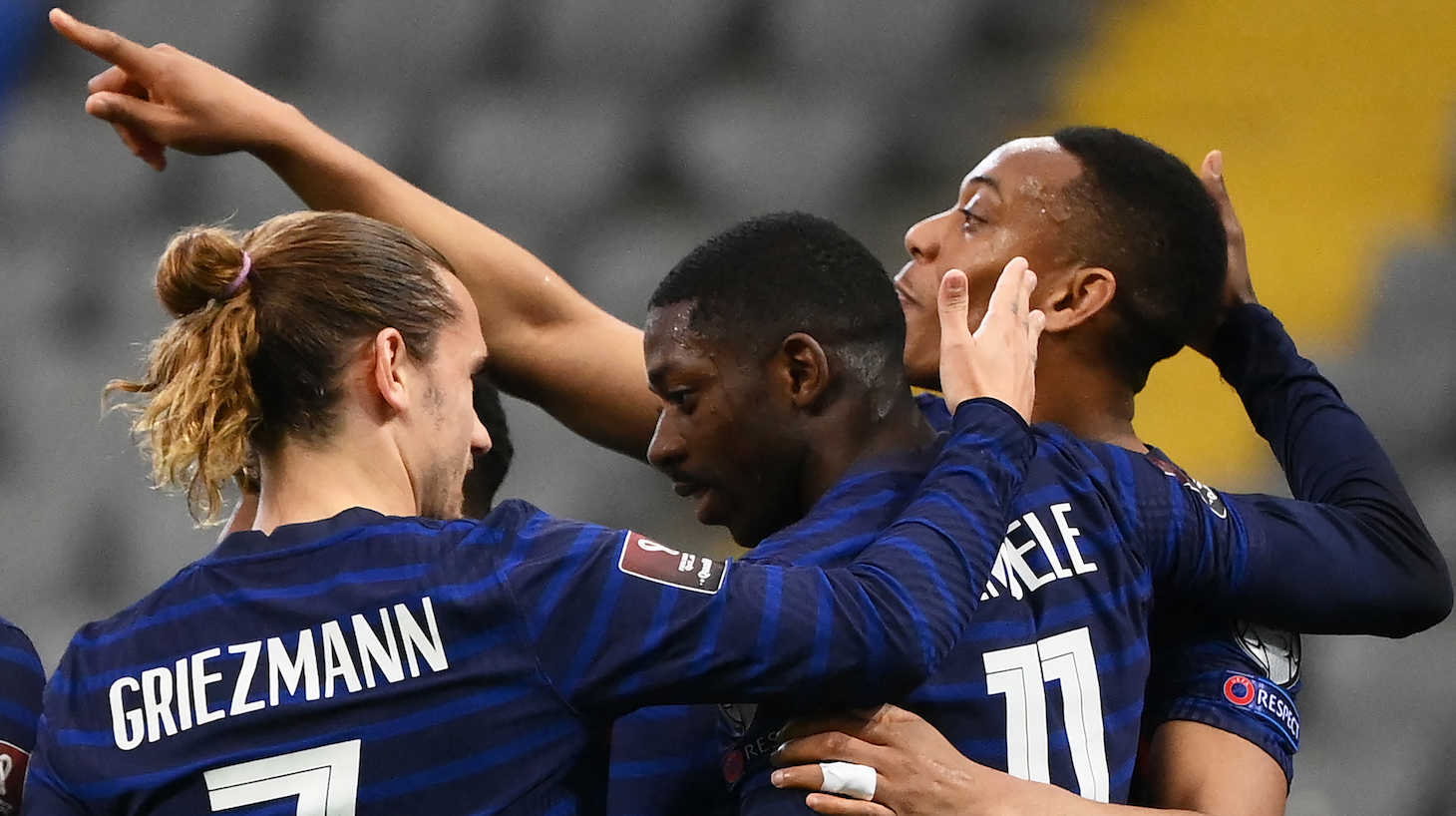Shorn of context, it's not exactly remarkable that Ousmane Dembélé started and starred for France in Sunday's 2–0 victory over Kazakhstan. We're talking about one of the most talented players of his generation, who just a handful of years ago was considered such a can't-miss prospect that he was signed for one of the largest transfer fees ever, who plays for no less a club than Barcelona. That a player with that pedigree would be getting minutes for his national team should be a no-brainer.
But in light of everything that has happened since that transfer to Barcelona in 2017—a truly nightmarish spate of major injuries, incredibly inconsistent performances during his all-too-brief stretches of health, and those two forces changing the question of his career from when he'd become a great player, to if he'd become a great player, to even whether he'd ever be healthy enough to become a reliable one—Dembélé being part of the national team set-up today feels more like a feat of wonder rather than one of inevitability.
Dembélé's presence on the France roster, his starting place against Kazakhstan, and the goal he scored in the game were all firsts for him since 2018. The call-up and start were just rewards for the player who is finally, after four years, having a great season at Barcelona. Coming off his single most injury-hit campaign yet, where he mustered fewer than 500 minutes of playing time during the entire 2019–20 season, and a summer transfer window when Barça was reportedly desperate but unable to cut its losses by selling him off, Dembélé has thrived this year. Much of the credit for this belongs to first-year Barcelona manager Ronald Koeman, who has transformed Dembélé by convincing the Frenchman to eschew his natural predilections in order to better maximize his strengths.
Historically, Dembélé has performed best as his team's go-to attacking playmaker. His ideal game is one where he is in a team that plays fast and vertically, where he can drop into spaces in the center-right channel, receive passes into his feet, and use his speed and dribbling skills to hotfoot it into wide open spaces and create. At Barcelona, Dembélé found himself in a team with several superior playmakers, that wanted to play a slow game in small spaces rather than a fast game in big ones, and that demanded from its forwards a precision and predictability that was completely foreign to Dembélé's erratic, chaotic style. For those reasons, even when Dembélé has been healthy, he's never looked like a great fit.
All of that has changed under Koeman, and in surprising ways. The biggest difference from then and now is, of course, Dembélé's health. After multiple years riddled with leg injuries, the 23-year-old has suffered only one this season, which kept him out for less than a month. On the pitch, Dembélé has looked like a completely different player—like two different players, in fact. For most of the season, Dembélé has played as a touchline winger. In place of his typical jaunts into central areas in search of the ball, Koeman had the forward stuck to the right sideline, intervening much less frequently but making much more of an impact by spreading defenses wide and feasting on the open spaces on the flank. That placement gives the team better spacing and a much-needed speed threat, and allows Dembélé more room and freedom to operate without hurting his team with ill-timed losses of the ball. It is in that role where Dembélé has turned into not only a surefire starter, but also one of the most important players in the team's style of play—neither of which was ever the case at the club before.
Over the past month or so, however, Koeman has pulled off an even greater trick by playing Dembélé as a center forward. Barcelona has been crying out for a fast striker who makes runs behind the defensive line for several years now. Dembélé, though ridiculously fast himself, has never looked like a good candidate for that role, mainly because of his preference for dropping deep rather than running in behind. Somehow, Koeman has coaxed Dembélé into doing his best Kylian Mbappé impression, and the results have been spectacular. He's still getting on the ball less often than I'm sure he'd like, but his speed and goal threat there allows Barça to play a style and formation that is getting the best out of all its players, and the team is playing its best soccer in years. At long last, Dembélé looks like the kind of player Barcelona can build around in the present and future.
All of that is what made it so encouraging to see Dembélé back with France on Sunday. At the crest of his young career, upon signing with Barcelona after a star-making season with Borussia Dortmund, it felt guaranteed that we'd see Dembélé lining up for France and leading them to victories like the one against Kazakhstan for a solid decade. If his career since then stands for anything, it's that even the surest sure thing is hardly inevitable in this sport, and also that with hard work, dedication, good coaching, and time, even the most star-crossed talents can get back to where they belong.






